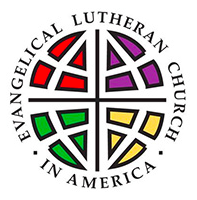
God’s Mysterious Work Among Us
Jun 16, 2024
Fourth Sunday after Pentecost
Text: Mark 4:26-34
Pastor Jean M. Hansen
If Faith’s gardeners followed the example of the farmer in today’s Gospel lesson, we would not donate more than 2000 pounds of fresh produce to OPEN M every summer! That’s especially true this year as we’ve been engaged in the battle of the Critter – or critters – in the west garden.
The faithful and determined gardeners have done a lot of replanting since the Critter destroyed most of the tomatoes, peppers, collard greens and green beans before some measures were discovered to protect the plants, although not completely. It has been a lot of work and the battle rages on, along with prayers for rain so that the watering chore is less demanding.
It’s the way of farmers … BUT … not the farmer in today’s parable about whom we read: “it is as if someone would scatter seed on the ground, and would sleep and rise night and day, and the seed would sprout and grow, he does not know how.” It sounds as if that farmer is throwing seed willy-nilly, isn’t watering or weeding or battling critters, and yet the not-so-carefully-planted seeds flourish. What’s the deal with that???
The deal is, of course, that it’s a parable, not to be taken literally, but rather is a story intended to teach a new reality and/or challenge an old one. In today’s case, the focus is on the nature of God’s reign, referred to as the Kingdom of God, which exists on earth and in eternity. Today’s parables are about the earthly location.
Please note that earlier in chapter 4 of Mark the familiar “Parable of the Sower” is recorded, the focus of which is all the obstacles to growth that the seed must face – hard ground, rocky soil and weeds. (What about critters?) Still, the seed that falls on good soil bears fruit, more than anyone might expect or imagine. The message is that the seed is the Word of God and the fruit it bears depends on the condition of the hearts that receive it.
In today’s first parable, the seed, which this time represents the Kingdom of God, seems to grow by itself without much help from the farmer who plants or harvests it. The message is this – the seed is not growing because of the farmer’s efforts, but because the earth where it was planted was ready to receive it and because of Divine intervention.
In other words, quoting commentator Chelsey Harmon, “The Kingdom grows, not because of us, but because of the miracles God works at God’s wise timing in and among God’s creation, the earth. The Kingdom is not something we can understand or control, but it is something we participate in as its blessing grow.” (1)
The growth of the Kingdom is a mystery; we may not understand how the kingdom seeds grow, but they do. This happens even when we are not tending them; they grow mysteriously in people’s hearts. And, one day, the results of the Kingdom’s silent, steady growth will be impressive; that’s the point of the second parable.
From something tiny will come something huge; that something is the Kingdom of God, represented by the mustard seed. Even thought Jesus described the mustard seed as the smallest of all seeds on earth, an exaggeration to make a point, the fact is that the mustard seed is not the smallest seed to ever exist, and it wasn’t even the smallest seed in the region where Jesus lived. What is unique about the mustard seed, though, is the size of the plant that comes from it - a shrub tree, over 15-feet-tall, with thick branches that keep its leaves all year round. The message is that God sows this seed, the Kingdom of God, and it grows to become a place of welcome and security for all living things – a home.
Just think, when Jesus first shared these parables, his listeners had not yet become the proclaimers of the Good News and what we now call the Christian Church did not even exist. As commentator Nibs Stroupe writes, “…the followers of Jesus are a bunch of ragged folk, full of doubts, full of fears, unable to comprehend much of what Jesus says or does. The reign of God bursting into history rests on these kind of folk?” (2)
The answer to that question is, “Yes.” They were the ones from which the Good News was proclaimed, which only proves the point that the kingdom grew not because of them, but because the light of Christ was shinning through them (remember last week’s cracked pots?) and because they were empowered by the Holy Spirit. They needed to hear that the growth of the Kingdom of God, in which they certainly would have an important role, was ultimately in God’s hands.
It’s interesting, isn’t it, that followers of Jesus in every generation have needed to hear that too, including us. We live in a country where there are fewer people who identify as Christians than ever before, and even more who might call themselves Christian or spiritual, but have no affiliation with a particular faith community; we all know people of whom this is true.
Synods, congregations, individuals struggle with that reality, wondering how to go forward, how to plant the seed of the Good News, while worrying about and wondering if the church as we know it will survive. If our focus is on “as we know it” then, no, the church probably will not survive. But if the focus is on “the miracles God works at God’s wise timing”, and that we can be used by God to create something new, then the Kingdom of God will flourish. It’s dependent, as always, on God’s grace and human willingness to listen and respond.
That’s the word of hope from these parables; God works in mysterious ways as we plant the Word. Then, the seed of faith grows and God’s grace-filled reign spreads, creating a home of welcome and security for all.
As I was writing this sermon I thought of the hymn, “All Are Welcome.” It describes that home of welcome and security for all. I’d like to finish by quoting two of its verses:
“Let us build a house where love can dwell and all can safely live,
a place where saints and children tell how hearts learn to forgive.
Built of hopes and dreams and visions, rock of faith and vault of grace;
here the love of Christ shall end divisions; all are welcome in this place!”
“Let us build a house where hands will reach beyond the wood and stone
to heal and strengthen, serve and teach and live the Word they’ve known.
Here the outcast and the stranger bear the image of God’s face;
let us bring an end to fear and danger; all are welcome in this place! (3)
May such blessings flourish among us! AMEN
-
“Mark 4:26-34 Commentary” by Chelsey Harmon, June 16, 2024, www.cepreaching.org
-
“Commentary on Mark 4:26-34” by Nibs Stroupe, Feasting on the Word, David Bartlett and Barbara Brown Taylor, editors, Year B, Volume 3, pgs. 143-144
-
“All Are Welcome” music and text by Marty Haugen, Evangelical Lutheran Worship (ELW), pg. 641






